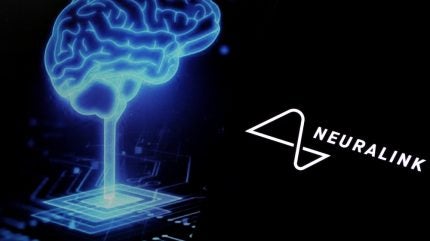
Neuralink grabbed much of the ‘brain chip’ headlines earlier this month when the company’s founder and owner Elon Musk announced the second successful implant of its device, but the tech startup is far from the only party that has made advancements in the space.
Brain-computer interfaces (BCIs), also called brain-machine interfaces, are chips implanted in brain tissue that take brain signals and translate them into commands. The signals are then relayed to a secondary, external device, which then carries out a specific function. At present, the main application is in the neuromuscular field, meaning paralysed patients can move muscles just by thoughts.

Discover B2B Marketing That Performs
Combine business intelligence and editorial excellence to reach engaged professionals across 36 leading media platforms.
Neuralink has captured much of public interest around this technology, owed in part to Musk’s stature as the richest person in the world. His company, however, has implanted just two paralysed patients with its device called Telepathy. Other companies in the space are further into their clinical journey.
Synchron
Touted as one of the main rivals to Neuralink is US-based Synchron. The company is further along in the clinical trial process than Neuralink and is preparing to recruit patients for a large-scale clinical trial ahead of commercial approval, as per Reuters.
Synchron completed enrollment in an early feasibility study (NCT05035823) in September 2023, the goal of which was to assess the number of subjects with treatment-related adverse events. Analysis of data from the trial is ongoing.
Under the US Food and Drug Administration (FDA) investigational device exemption, the company has implanted its device in six patients.

US Tariffs are shifting - will you react or anticipate?
Don’t let policy changes catch you off guard. Stay proactive with real-time data and expert analysis.
By GlobalDataSynchron is backed by billionaires Jeff Bezos and Bill Gates, among others. The company raised $75m in Series C financing in December 2022.
BrainGate
Originally conceived by researchers in the Department of Neuroscience at Brown University in Rhode Island, BrainGate has grown into one of the leading BCI developers undertaking clinical trials. Its technology was the first to transmit wireless commands from a human brain to a computer.
BrainGate is conducting the BrainGate clinical trial and investigators reported a successful case study in the New England Journal of Medicine last week. The researchers at Brown University report that the technology translates brain signals into speech with up to 97% accuracy, meaning patients with speech impairments could benefit from the implant. The system allowed a 45-year-old patient with amyotrophic lateral sclerosis to communicate words he was thinking of saying.
Clinatec
Located on the CEA campus in Grenoble, France, Clinatec has developed its Wimagine device that, in 2019, was used to help a tetraplegic patient fitted with an exoskeleton to walk.
In May 2023, Clinatec published results in Nature demonstrating its device helped restore communication between the brain and spinal cord. As a result of the implant, a patient with chronic tetraplegia was able to stand and walk naturally.
The company has an ongoing partnership with Onward Medical, where its BCI is used in conjunction with the latter company’s ARC technology. ARC therapy is targeted stimulation of the spinal cord designed to restore movement of paralysed muscles. Working in tandem with ARC-IM, the BCI captures the intention of a paralysed individual to move their upper extremities, which then sends information to the ARC-IM. Onward’s technology then converts the decoded information into ARC-IM therapy on the spinal cord.
Onward has completed two feasibility studies with the ARC-BCI system, demonstrating the technology’s ability to restore movement in upper and lower limbs.



